Profile
Overcoming autism …the story of young Phil Bertino
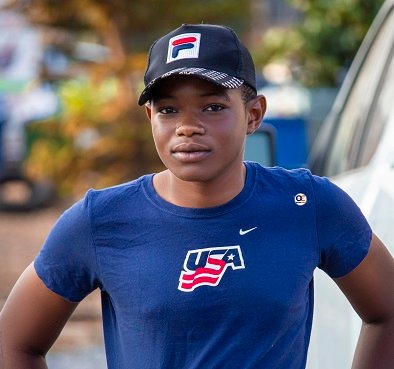
Fourteen-year-old Phil Bertino, is the first child of Mr Phil Bertino and Mrs Elizabeth Acquah Bertino.
He was born healthy and grew up with no sign of abnormality but his development took a different turn at age six when he was diagnosed to be autistic.
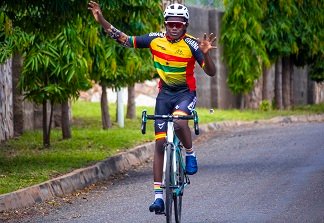
more cycling laurels
The signs had started when he was about two years old. The one letter words he could pronounce had disappeared and he was only making unintelligible sound.
When the condition started worsening at age three, his parents sought medical attention and were advised to enroll him in a speech therapy. He enrolled for six months but there was no remarkable progress.
His parents, determined to ensure he grew up a ‘normal child,’ tried other medical and spiritual remedies but eventually had to come to terms with the reality that Phil was, indeed, autistic.
The knowledge of the condition and the fact that it has no cure was unbearable for the couple but this did not crush Phil’s dream of becoming a professional cyclist.
In September this year, he was part of over 70 professional riders at the 17th edition of the Teshie Homowo Cycling Challenge.
He put up a splendid performance to finish his 76km race in 2:45:33secs with an average speed of 27.56km/h, received massive cheers for his effort, and was presented with a special trophy, medal and jersey for his achievement on the day.

sports including basketball
Autism Journey
Mrs Bertino, speaking about her son’s autism journey in an interview with The Spectator, said that they consulted a number of people for advice and were led to one professor who claimed he had a cure.
However, after relying on the professor’s expensive and imported supplements for some time, there was no result.
According to her, although there was some improvement in other medical and herbal options they tried, the effect on the autism symptoms was minimal.
The search for solutions led Mrs Bertino to discover a ‘touch-based’ remedy which she applied leading to Phil’s massive improvement.
She subsequently formed the Liztino Centre for Children with Special Needs to help parents who have autistic children with young Phil as a case study.
Challenges
She said that some of the challenges the condition presented included Phil’s inability to express himself verbally and understand whatever was said to him.
“He was hyperactive as he could not sit for a moment or concentrate on any subject. There was also attention deficit as he was easily distracted and could not focus on one thing at a time. He sometimes left the house unnoticed and would be missing, and on one of such situations, he was found the next day after he got missing,” she noted.
In addition to other complications, Phil used to “fear certain colours and objects and could not remember what he was taught the next minute,” according to his mother.
Academically, he had to change five schools within a short time as teachers and school authorities found it difficult to cope with his disturbing condition.
Improvement
Mrs Bertino said that the symptoms of autism stated above had “gradually vanished.”
“Our stress as parents has been significantly eliminated and Phil is virtually independent. He has developed interest in cycling and undertaken various trips over long distances to create autism awareness,” she emphasised.
Phil is now an Autism Ambassador and celebrated across the country which he continues to give hope to other children and parents. Aside cycling, he plays tennis, basketball and is a good swimmer also.
Mrs Bertino, urged parents with autistic children to get them involved in sports as it contributed to their overall development and management of the disorder.
“Parents should avoid locking up such children in their rooms as they could be useful when supported and provided with the necessary things as any other child.
“The acceptance of autistic children in Africa is not the best and efforts must be made to raise the awareness so they would be considered part of society,” she said.
Appeal
While urging society to be supportive of children with autism, she further called on government and other stakeholders to “go beyond policies on paper and do more to support children with autism.”
Mrs Bertino, said that plans were far advanced for Phil to travel outside the country and compete in cycling as he had developed very fast and could challenge for laurels.
“Phil is good and can do well and possibly become a champion in cycling in the near future. Such children should not be hidden but rather be exposed to sporting activities and be nurtured to develop like any other talented children,” she stressed.
By Michael D. Abayateye
Profile
Edwina Anokye-Bempah Redefining Trust in Ghana’s Real Estate Landscape
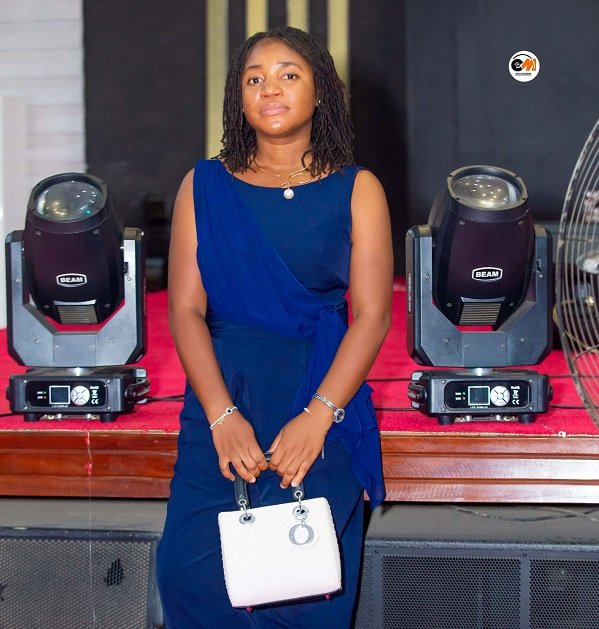
Every morning begins the same way for Edwina Anokye-Bempah, with quiet devotion. It is her grounding ritual, a moment of reflection and gratitude before she steps into the dynamic, often unpredictable world of real estate brokerage.
By the time she arrives at the office, she has already set the tone for her day. She reviews the previous day’s tasks, checks what was accomplished and what still needs attention, and then drafts a new to-do list. For her, success is rooted in deliberate planning, discipline, and the commitment to follow through.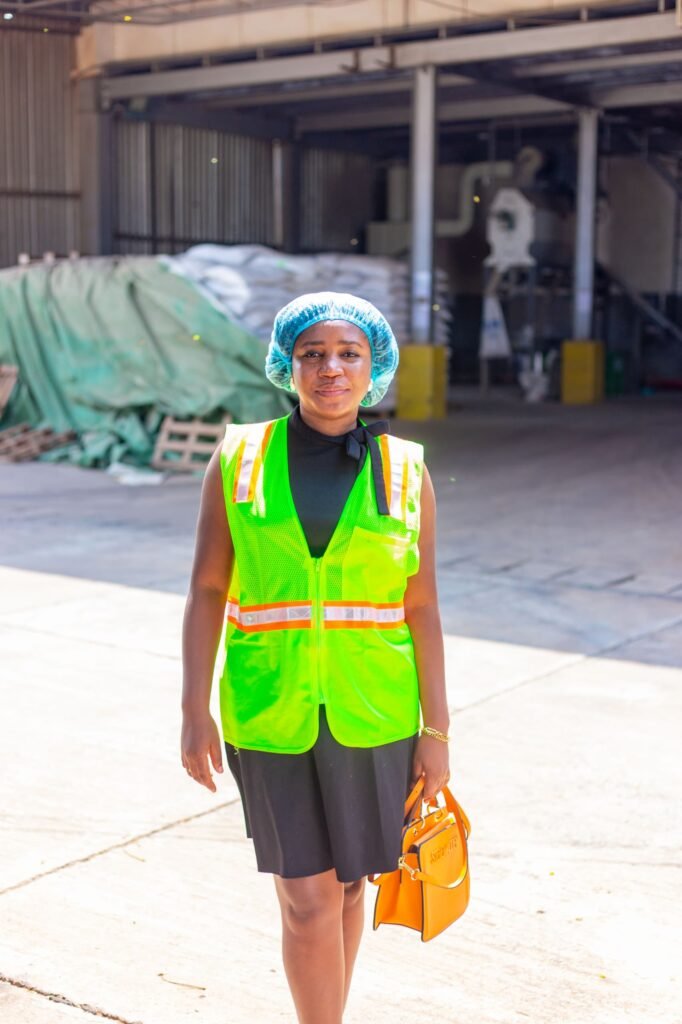
Today, Edwina stands out as one of Ghana’s promising real estate brokers, but she is also clear about the distinctions within her field. While many people casually use the term ‘realtor,’ she is quick to explain that only professionals registered with the National Association of Realtors can claim that title.
“Since I am not registered with the association, I am a real estate broker,” she says. It is a role she embraces wholeheartedly, facilitating transactions, connecting buyers and sellers, and ensuring clarity and integrity at every step.
Her journey into the industry took shape at MeQasa, an online platform dedicated solely to real estate. The platform exposed her to developers, agents, and the complexities of property transactions. She worked closely with developers and observed one recurring problem: clients often complained about agents who failed to respond, follow up, or provide accurate information.
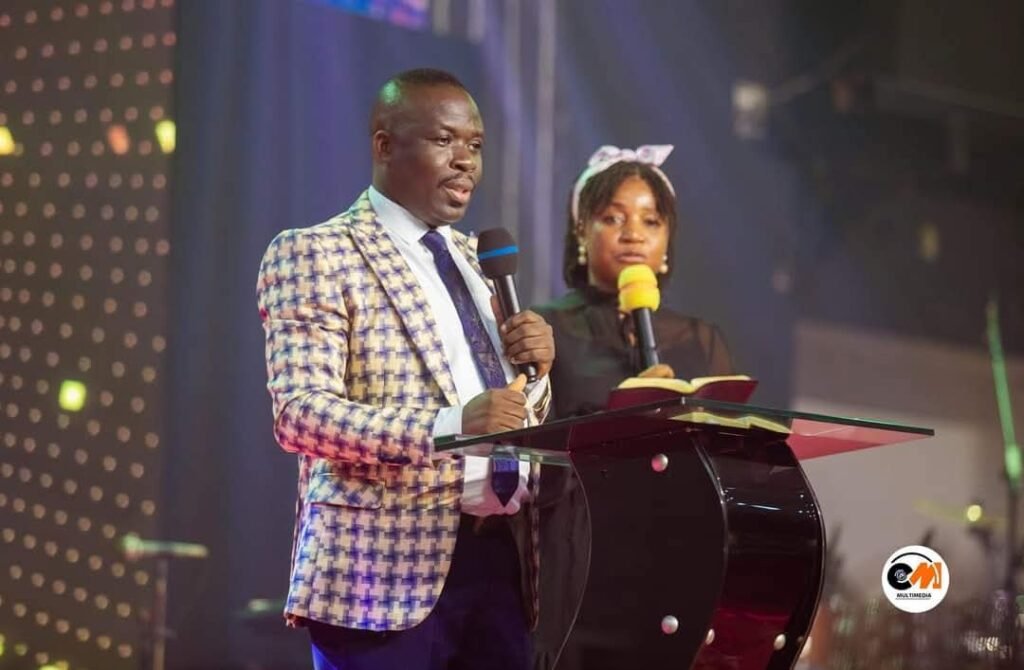
With her background in sales and marketing, Edwina felt naturally drawn to the field. It was an industry where she believed she could make a meaningful, positive impact. Real estate, she came to learn, is far more than brick and mortar. It is about helping people secure one of the most important investments of their lives. This understanding shapes every decision she makes.
One of the most challenging tasks in her work is qualifying clients.
“A serious buyer must be willing, ready and able,” she explains. When one of these three qualities is missing, the transaction is likely to stall or collapse entirely.
On the seller’s side, due diligence is equally critical. Ownership disputes, land fraud, and unclear documentation remain some of the biggest risks in Ghana’s real estate sector.
Edwina understands the weight of the responsibility she carries. “The money involved is huge. These are people’s lifetime savings. Most people buy one home or maybe two in their entire lives. You cannot afford to make a mistake.”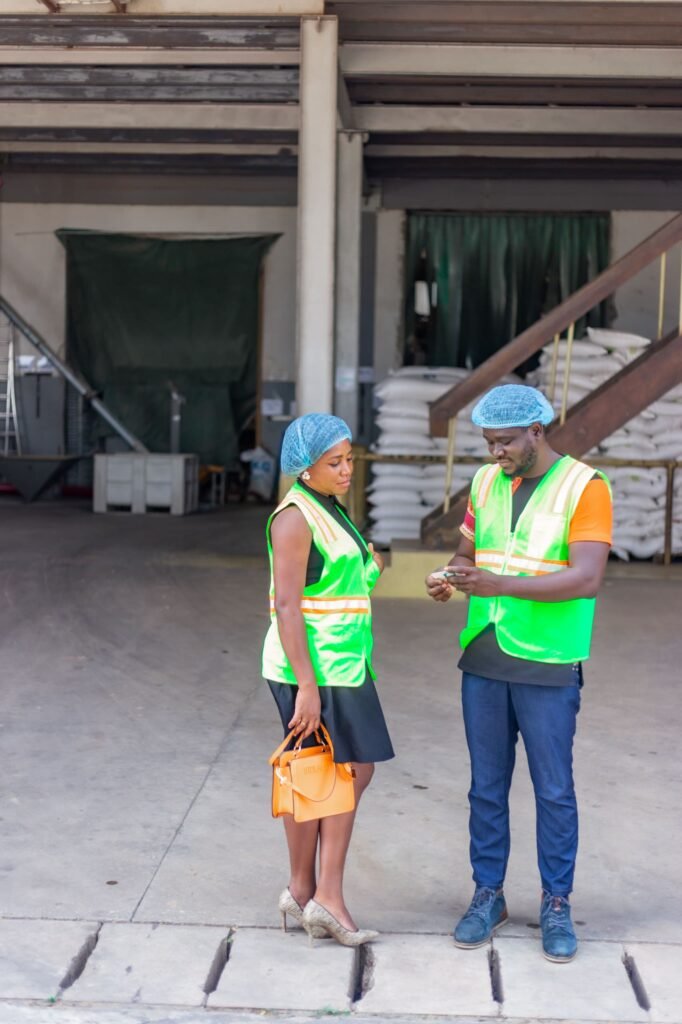
Working in what many describe as a male-dominated field has never intimidated her. With an MBA in Marketing and extensive experience in sales roles including a stint as an Account Manager in an advertising agency, she has grown comfortable handling clients, negotiating deals, and presenting herself with confidence.
“My gender has never discouraged me,” she says. “What matters is hard work and ensuring that the client’s needs were met.”

The only occasional challenge, she admits, was maintaining professional boundaries when some men attempt to be overly familiar. Her solution is simple: stay professional and do not over-familiarise yourself with clients.
Her educational journey started in Kumasi, followed by Yaa Asantewaa Girls’ Senior High School, where she studied Agricultural Science. She continued the same at the University of Ghana before pursuing her master’s degree. After university, she worked on her uncle’s poultry farm before moving into advertising. Later, her role at MeQasa finally opened the door to the career she had long been unknowingly preparing for.
Over the years, Edwina has built a reputation not only for competence but also for care. She recalls one client in particular, an older man relocating to Ghana with no family in the country. After helping him secure two homes, she became the closest person he could rely on. One evening at around 8 p.m., he called to say he felt unwell. Without hesitation, she drove to his home and rushed him to the hospital. Doctors later told her that any delay could have been fatal.
For Edwina, that moment affirmed that the job goes far beyond selling property. “It doesn’t end with the sale,” she says. “You have to look out for people.”
Her influence also extends to younger people observing her journey. She is known for her tenacity, her refusal to give up on clients or tasks, and her resilience in the face of challenges. Those who work around her learn to push forward regardless of setbacks.
“If a deal doesn’t go as expected, you don’t look back. You find a way.”
Beyond real estate, Edwina serves as an interpreter in her church, a role that dramatically boosted her confidence. What began with trembling legs has evolved into a boldness that reflects in her public speaking and client interactions. She credits her growth to God, her senior pastor, her mother, siblings, friends, and her dedicated team — “an amazing circle,” she calls them.
Today, she is also a partner in a showroom business dealing in vanity units, sanitary wares, and tiles, an extension of her real estate insight and experience.
For young people aspiring to join the industry, her advice is clear: “Learn the industry beyond selling. Understand transactions, build strong relationships, and always do your due diligence.”
For Edwina Anokye-Bempah, real estate is more than business; it is trust, service, and impact, one client at a time.
By Esinam Jemima Kuatsinu
Join our WhatsApp Channel now!
https://whatsapp.com/channel/0029VbBElzjInlqHhl1aTU27
Profile
How a Collapsed Dream Birthed Another: Daniel Debrah’s Music Journey

From the age of five, Daniel Nana Kwesi Kakra Debrah has lived a life surrounded by rhythm, harmony, and the quiet pulse of music. Growing up in a home where instruments filled corners and rehearsals were as normal as conversation, Daniel’s first teachers were not in formal classrooms—they were the sounds, movements, and discipline he absorbed from his father, a committed church musician.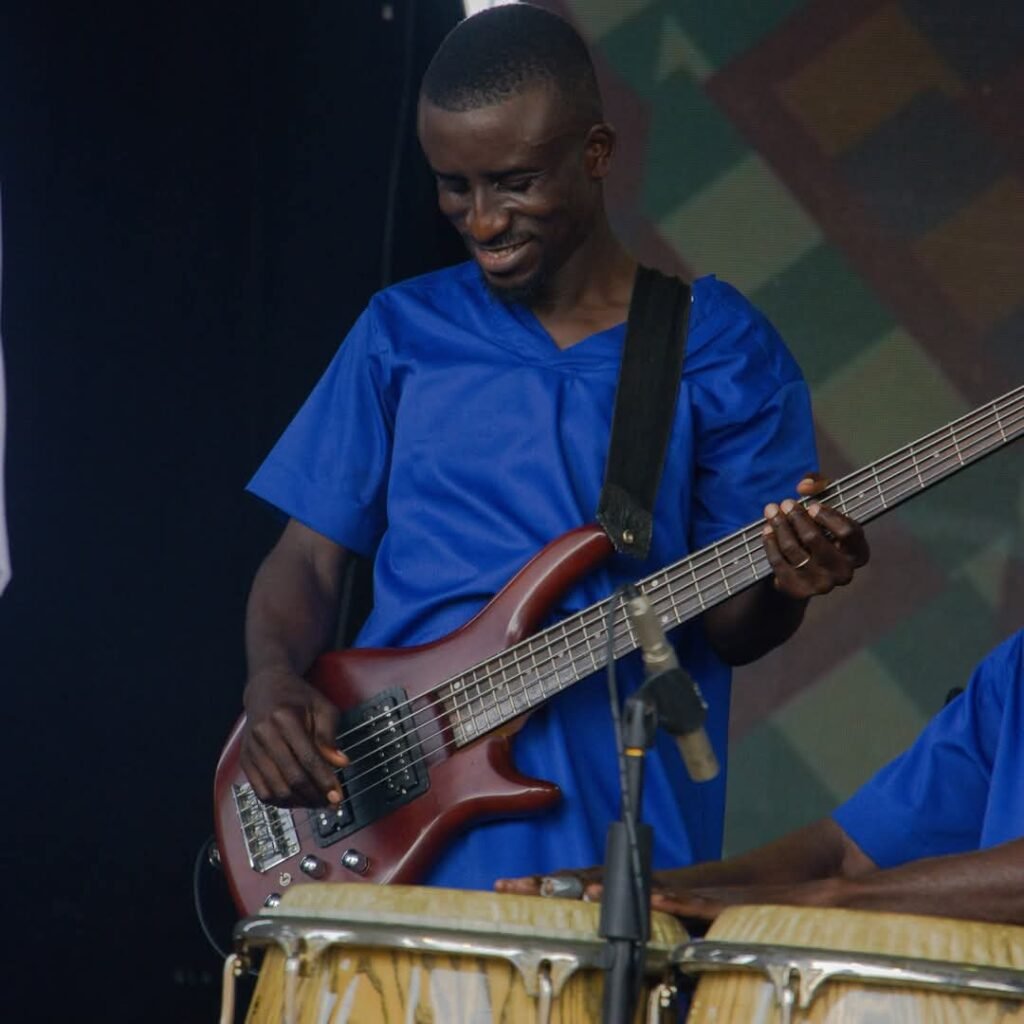
Ironically, music was not Daniel’s first dream. Like many young boys, he once hoped to become a professional footballer. But an injury from a school match left him unable to walk for three months, forcing him to retire that ambition. What seemed like a tragedy at the time became the turning point that aligned him with the path he was always meant to follow.
Daniel’s earliest musical expression began in church. As a boy in Sunday School, he eagerly ‘pounded’ the drums, quickly becoming known as the child who never missed an opportunity to play. Even in Senior High School (SHS), although many of his classmates were unaware of his talent, he continued practising quietly until completing school in 2005.
After SHS, Daniel joined a church music class with the intention of growing as a drummer, but one moment changed everything. Watching a bass guitarist perform stirred something in him. Drawn to the deep, steady tones of the bass, he persuaded a friend to teach him the basics. With no instrument of his own, Daniel practised at home using a broken guitar for more than eight months.
Then destiny intervened. The church’s lead bassist was suddenly suspended, and Daniel stepped in voluntarily during an evening service. That temporary voluntary act became permanent as he was asked by the then Music Director to fill in the gap. From that point, he embraced the bass guitar fully—a decision that defined the rest of his life.
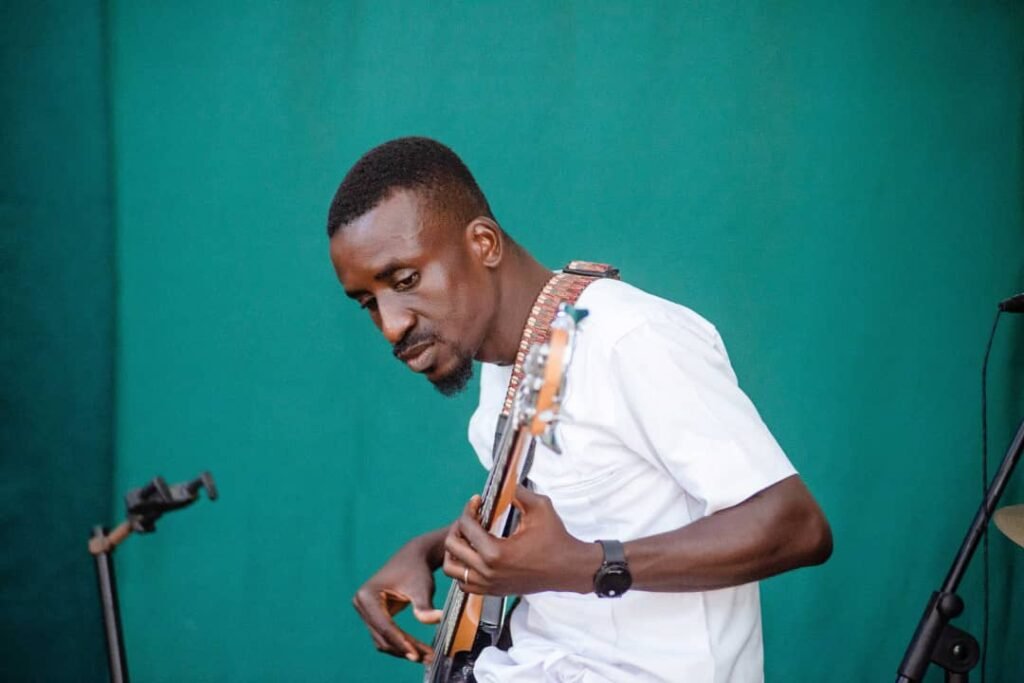
Around 2006, Daniel made a life-changing decision to take his craft seriously. He began practising for hours on end, sometimes up to eight hours a day, often without food, locked away from family and friends, perfecting techniques and expanding his creativity. While others assumed he was outdoors socialising, Daniel was indoors sharpening his gift.
His breakthrough came in 2007 when he performed in the TV3 Bands Alive competition. The exposure, applause, and feedback confirmed his dream: “music was not just a passion; it was his calling,” he said.
With time, Daniel moved confidently into the professional space. He performed at studio sessions, live concerts, weddings, church events, and high-profile national programmes. His talent, discipline, and reliability earned him a reputation that continues to attract respected gospel artistes.
Today, he works closely with Daughters of Glorious Jesus, Chris Apau, and Israel Ofori, who have been of immense help to his career ministry. He also collaborates with several ministries and offers support with musical arrangements, live performances, and studio recordings.
Beyond the stage, Daniel sees himself as a mentor. Many young musicians reach out to him, some visiting in person, others calling for guidance. Whether through hands-on training or virtual coaching, he is always ready to teach. For Daniel, music is not just technique; it is character, discipline, and values. He believes a musician must carry integrity both on and off stage.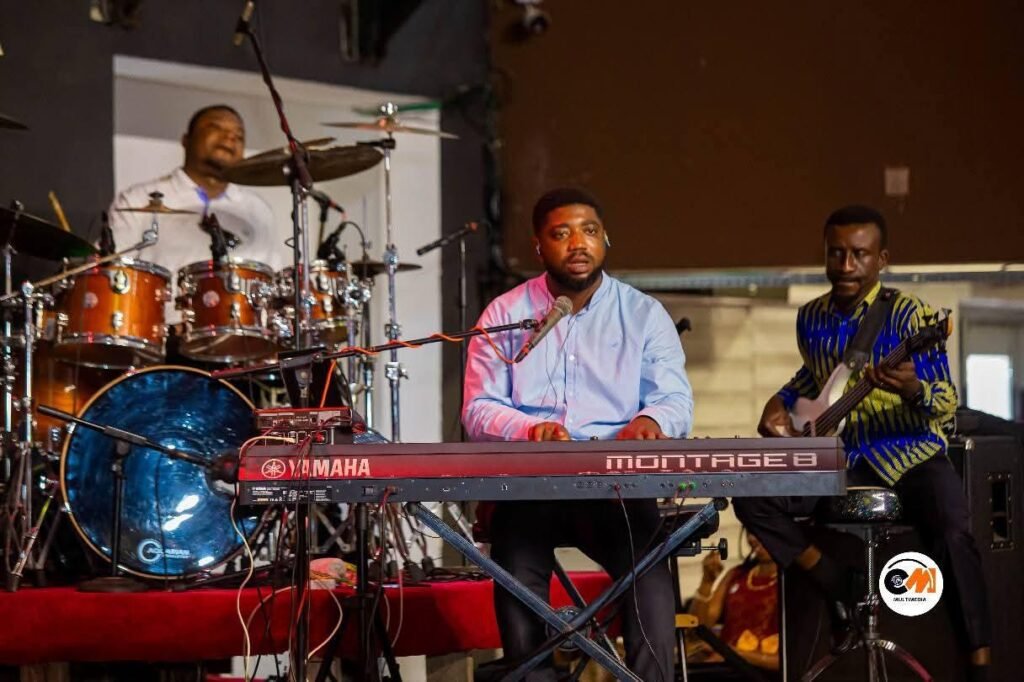
Like many musicians in Ghana, Daniel has faced challenges with delayed payments and broken agreements. These experiences have taught him to value professionalism. He now insists on part payment upfront and charges more for his services, a decision grounded in self-respect and fairness.
Daniel’s journey in music has been shaped by various individuals who have supported him at different stages of his career. He acknowledged Opoku Agyeman Sanaa, Kofi Ennin, Andrew Klu, Mr. Samuel Abbey, Mr. Samuel Sarpong Agyei, Paul Quartey, Mr. Nene Emmanuel, and Mr. Isaac Asiedu, saying that their belief in him continues to inspire his journey.
Daniel’s work is guided by his Christian faith. He sees music as ministry, not merely entertainment. Off stage, he is a devoted family man—a husband and father of two, a boy and a girl, who have also started playing musical instruments. During his leisure time, he listens to music, or plays football and action video games.
Through his acts of service and unwavering determination, Daniel continues to inspire others, proving that when passion meets integrity, ordinary men impact the lives of others.
By Esinam Jemima Kuatsinu







